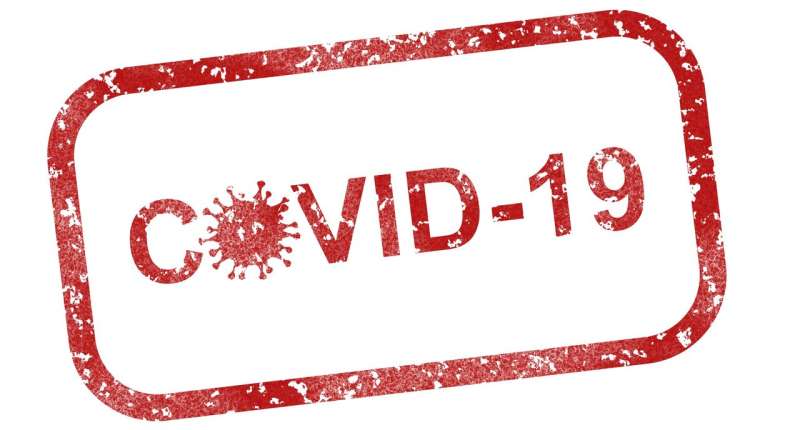Daily virus deaths hit new record as nations tighten curbs

Daily global deaths from COVID-19 topped 18,000 for the first time in the latest reminder of its deadly impact while countries further tightened restrictions Wednesday in their struggle against new virus variants.
With vaccines seen as the only real chance of returning to some form of normality in the months ahead, a row also erupted between the European Union and drugs firm AstraZeneca over the supply of inoculations.
Several countries meanwhile imposed new restrictions or considered them as they faced the reality that measures so far to contain infections have fallen short, particularly with new variants spreading.
The more infectious strain of the virus that first emerged in Britain has now spread to 70 countries, the World Health Organization said, while another detected in South Africa has been found in 31.
Overall, cases have now topped 100 million worldwide and some 2.2 million people have died from the virus since the outbreak emerged in China in December 2019.
A total of 18,109 deaths were registered on Tuesday, a new record.
While necessary, waves of lockdowns and closures have led to severe economic losses and anger in some countries, including riots in recent days in the Netherlands and clashes between protesters and security forces in Lebanon.
Britain, the hardest-hit country in Europe and which has became only the fifth nation in the world to surpass 100,000 deaths, announced new hotel quarantine rules on Wednesday for citizens.
UK citizens and permanent residents flying back from 22 countries deemed at “high risk” from COVID-19 variants must stay in hotels for 10 days, interior minister Priti Patel told lawmakers.
The 10-day quarantine will cost returning Britons £1,500 ($2,060, 1,697 euros), with meals served at the bedroom door and security guards supervising stays, according to media reports.
‘Very unlikely’
France considered whether to order a third nationwide lockdown as the government admitted that current restrictions, which include a nighttime curfew, were not enough.
President Emmanuel Macron was reported at the weekend to favour a new lockdown, but the government decided to hold off for several days to analyse data on new infections and hospital admissions.
Travel into Finland slowed to a near standstill Wednesday as new restrictions came into force, while Portugal suspended all flights with Brazil.
In Latin America, 16 million Peruvians will enter a two-week lockdown covering a third of the country at the end of January.
Russia’s capital Moscow however was moving in the other direction, announcing Wednesday a further easing of restrictions citing the improving health situation.
Hong Kong has begun using “ambush lockdowns” to suddenly close off and test everyone inside neighbourhoods where cases have spiked, while in Wuhan, relatives of coronavirus dead said they were being pressured by Chinese authorities.
They say they have had their social media group deleted and were being pressured to keep quiet while a WHO team is in the city to investigate the pandemic’s origins.
‘Deliver on its commitments’
The row between the EU and British-Swedish firm AstraZeneca reflected the growing pressure on politicians over troubled vaccination rollouts.
With AstraZeneca having informed the EU it could only supply a quarter of the vaccine doses it had promised for the first three months of this year, the European Union has been pressing it to “deliver on its commitments”.
The row risked setting the EU and Britain on a post-Brexit collision course as they both insisted on receiving promised supplies.
“We reject the logic of first-come, first-served,” EU health commissioner Stella Kyriakides said.
“That may work at the neighbourhood butcher’s but not in contracts, and not in our advanced purchase agreements.”
‘War-time undertaking’
The United States, which has seen the world’s worst outbreak, has been seeking to speed up vaccination distribution, with new President Joe Biden trying to turn around the country’s fight against the virus.
“This is a war-time undertaking. It’s not hyperbole,” Biden said, announcing the US was buying an additional 200 million doses and will have enough to vaccinate 300 million Americans—virtually the entire population—by early fall.
Further evidence of the pandemic’s economic toll was also on display Wednesday as the German government said it expected Europe’s top economy to grow by three percent this year, less than previously forecast, as longer virus shutdowns slowed the recovery.
Source: Read Full Article
